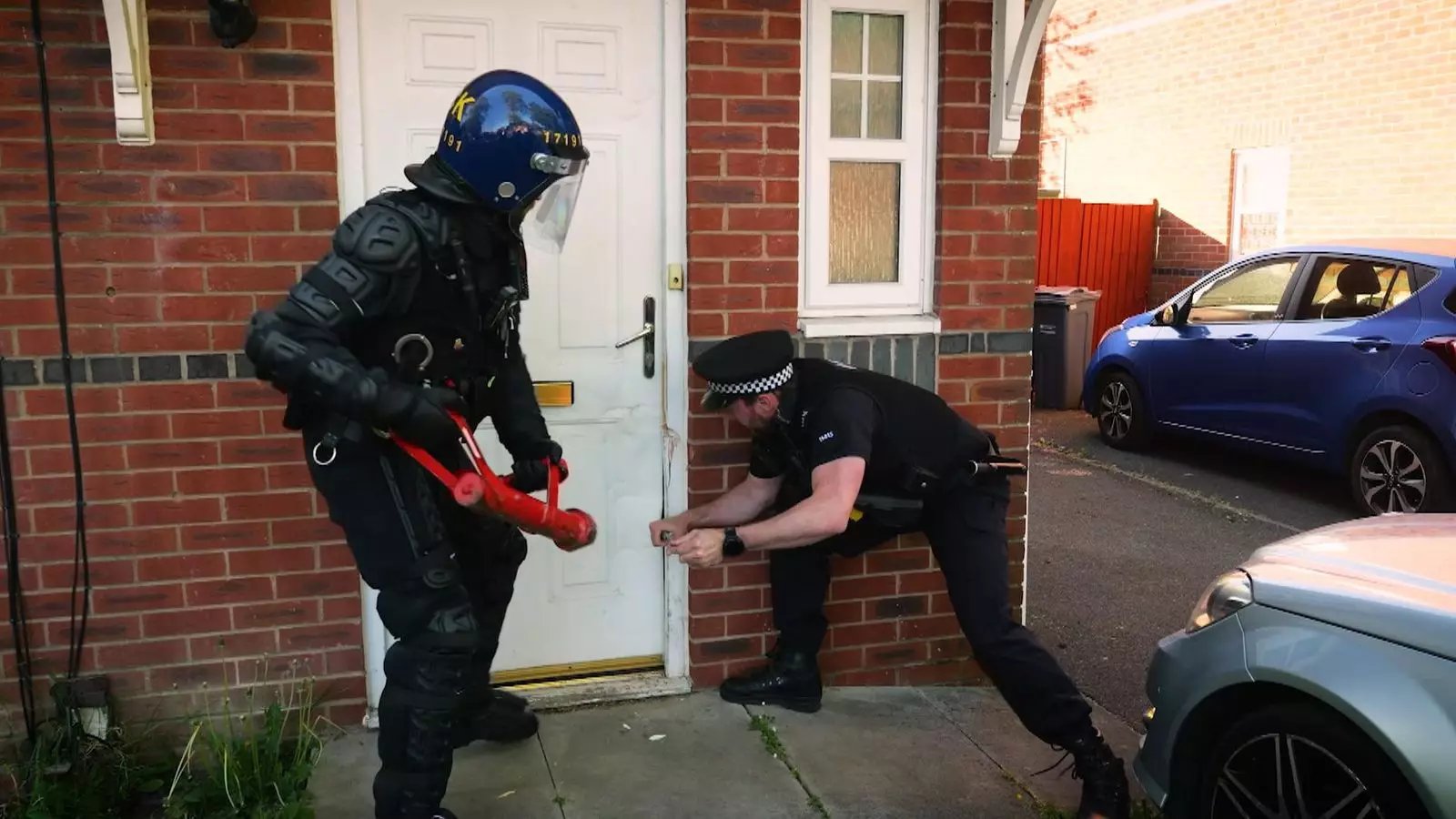Across the United Kingdom, the rise of organized crime isn’t just a statistic; it’s a creeping shadow that encroaches upon breathing communities, leaving a grave imprint on public safety. The alarming trend of criminal gangs converting rented homes into illegal cannabis farms presents a multifaceted menace. While many dismiss this issue as a mere nuisance, the reality is chilling: innocent lives are at risk, and the fabric of community safety is being shredded. With increasingly sophisticated methods used to operate these illicit enterprises, the state—and society at large—must confront the deeper implications of this underground economy.
One of the most shocking realities surrounding cannabis farms is the brazen and reckless appropriation of energy resources. In trying to bypass electricity meters, these gangs employ dangerous methods that create a significant fire hazard. Such actions are not just illegal; they jeopardize the lives of neighboring families who are blissfully unaware of the imminent danger right outside their doors. This degree of negligence unveils a troubling indifference to the welfare of local residents, reflecting a wider dehumanization rampant within the criminal underworld.
Brutal Rivalries and the Myth of ‘Soft Crime’
Equally troubling is the alarming pattern of violence escalating within these criminal networks. The operation of such farms is a gateway to intense rivalries, where one gang’s success inevitably invites retaliatory violence from competitors. An unfortunate byproduct of this gang warfare is the very real threat of harm—or even death—to anyone who might inadvertently stand in the way. This includes low-level operatives, known in criminal jargon as “gardeners,” who typically find themselves trapped in a vicious cycle of allegiance, punishment, and complicity. Those who think that cannabis cultivation is merely a harmless “soft crime” are blind to the brutal realities that underpin this illicit business.
Reports from law enforcement illustrate the grim consequences that can stem from the pursuit of profit in this context. The tragic death of seven-year-old Archie York during a catastrophic explosion in a cannabis factory serves as a heartbreaking reminder of the consequences of a reckless drug economy. It is imperative to understand that behind the facade of cannabis cultivation lies a brutal and violent landscape, one where profits outweigh human lives.
The Fight Against an Elusive Enemy
The struggle against organized cannabis farms is further complicated by their reliance on rented accommodations, often procured through rogue landlords. This modus operandi serves as a lifeline for criminal enterprises, allowing them to operate under the radar and evade detection. Law enforcement officers, such as Detective Inspector Paul Crompton from the Greater Manchester Police, have raised legitimate concerns about the challenge of dismantling these operations. The culture of acceptance surrounding cannabis distracts—or worse, demeans—this pressing societal issue. People often forget that behind the rented walls lies a web of violence and intimidation.
It is disheartening to perceive the utter lack of awareness surrounding these cannabis farms among landlords. Sajjar Ahmad, chief executive of the British Landlords Association, shares a sobering account of losing one of his properties to gang activities. His description of the aftermath is shocking, exposing the dark realities many landlords face. Such experiences force the conversation beyond legality; they implore us to address accountability and social responsibility in property management.
Cultivating Change: A Community Responsibility
Society must shift its perspective on cannabis cultivation and recognize the interconnectedness of these issues. Addressing the underlying structures that allow organized crime to flourish is paramount—a daunting task, but an essential one. Community involvement, stronger landlord oversight, and public awareness campaigns can collectively pave the way for a more secure environment. Dismissing these factors contributes to a cycle of violence that devastates communities, while empowering organized crime operations.
Inaction is not just negligence; it’s complicity in a system that thrives on exploitation and fear. The reality is clear: behind the green leaves of cannabis lies a world of moral decay masked in the guise of economic opportunity. It is high time that society confront this menace head-on, transforming apathy into action and engagement, lest we risk perpetuating a culture of lawlessness that threatens our neighborhoods.


Leave a Reply